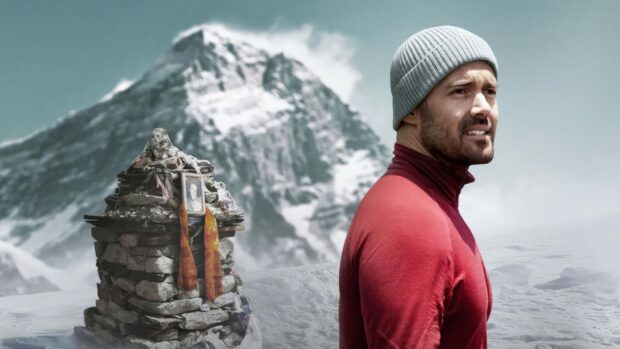Although his heart was undoubtedly in the right place, Spencer Matthews’ mission to Everest to recover the dead body of his brother raised some uncomfortable issues – none of them addressed in the documentary.
In Finding Michael (Disney+), the Made In Chelsea star journeyed to Nepal to search for the body of his older brother, who died in 1999 just hours after becoming the youngest Brit to scale the mountain.
The 22-year-old disappeared as he made his descent and a grainy photograph of an unidentified body lying near the top is all Spencer has to go on.
And it was at this point that I started having my doubts about the expedition…”
The pre-publicity gave the impression that Spencer would be scaling Everest, but in reality, he stayed in the relative safety of basecamp while a team of sherpas were deployed into the ‘death zone’ to search for his sibling.
And it was at this point that I started having my doubts about the expedition…
The fact Spencer wants to repatriate Michael is completely understandable – who wouldn’t? – but the use of sherpas, who the documentary was keen to point out are often the ones who frequently die on the mountain, seemed, well, morally questionable.
That was particularly the case when, faced with the likelihood that his personal mission would be unsuccessful, Spencer decided to recover the body of a sherpa instead.
On the face of it, it seems like a lovely gesture, but it did raise eyebrows.
As the poverty-stricken sherpa’s family tearfully told Spencer about how they could never recover the body themselves because they earn so little and how poorly they were treated by insurance companies, the distinct whiff of ‘white saviour’ began to emanate from the documentary.
It needn’t have been that way. Those messy undercurrents could and should have been addressed by the filmmakers.
I would like to have seen them explore the morally murky relationship between rich westerners and local sherpas”
I would like to have seen them explore the morally murky relationship between rich westerners and the local sherpas, who are paid a comparative pittance to risk their lives. What financial responsibility do the wealthy climbers have to their guides and their dependents?
Finding Michael ultimately played out in a much more simplistic, emotional way and was clearly more interested in tugging the heartstrings than examining those thornier topics.
Which is a shame, because there seemed to be a much better documentary lurking just under the surface – and one that would have paid its respects to both Michael’s life AND the legion of sherpas who lie dead alongside him on the slopes of Everest.

